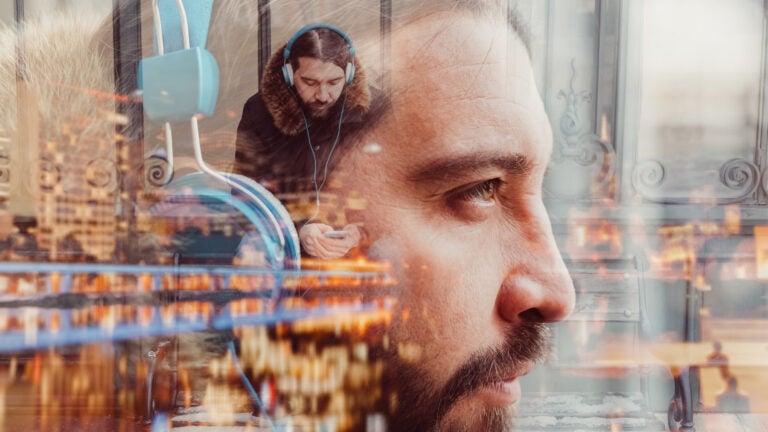
Does listening to a certain song give you the chills? Your brain may be wired differently. (Photo/iStock)
If you get the chills from music, you may have a unique brain
Listen to what a USC researcher says about people who could have an enhanced ability to experience intense emotions
[soundcloud url=”https://api.soundcloud.com/tracks/305637346?secret_token=s-zlP5D” params=”auto_play=false&hide_related=false&show_comments=true&show_user=true&show_reposts=false&visual=false” width=”100%” height=”450″ iframe=”true” /]
When Alissa Der Sarkissian hears the song “Nude” by Radiohead, her body changes.
“I sort of feel that my breathing is going with the song, my heart is beating slower and I’m feeling just more aware of the song — both the emotions of the song and my body’s response to it,” said Der Sarkissian, a research assistant at USC’s Brain and Creativity Institute, based at the USC Dornsife College of Letters, Arts and Sciences.
Der Sarkissian is a friend of Matthew Sachs, a PhD student at USC who published a study last year investigating people like her, who get the chills from music.
The study, done while he was an undergraduate at Harvard University, found that people who get the chills from music actually have structural differences in the brain. They have a higher volume of fibers that connect their auditory cortex to the areas associated with emotional processing, which means the two areas communicate better.
“The idea being that more fibers and increased efficiency between two regions means that you have more efficient processing between them,” he said.
People who get the chills have an enhanced ability to experience intense emotions, Sachs said. Right now, that’s just applied to music because the study focused on the auditory cortex. But it could be studied in different ways down the line, Sachs pointed out.
Sachs studies psychology and neuroscience at USC’s Brain and Creativity Institute, where he’s working on various projects that involve music, emotions and the brain.
Click the audio clip above to hear how music and the chills work.
